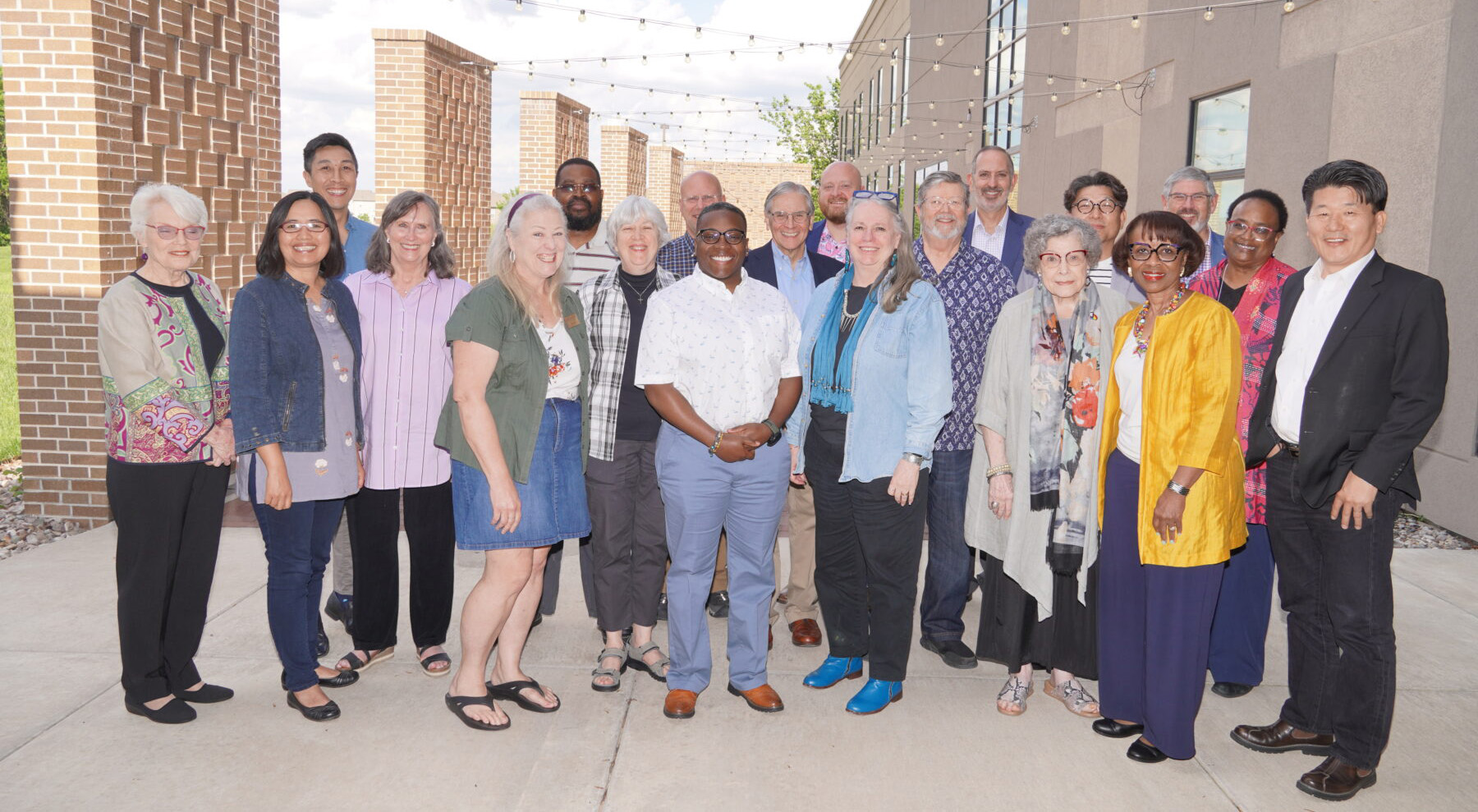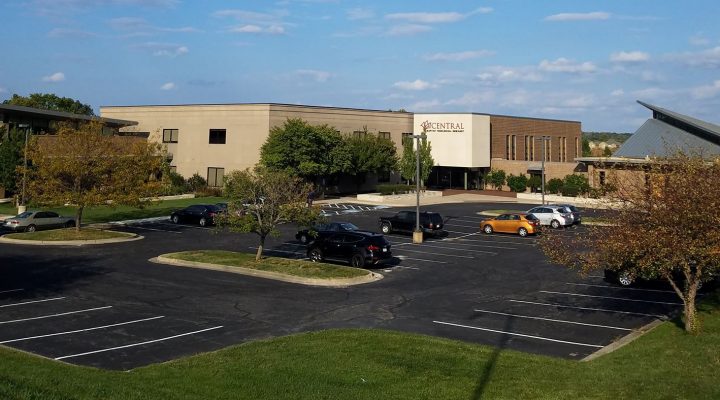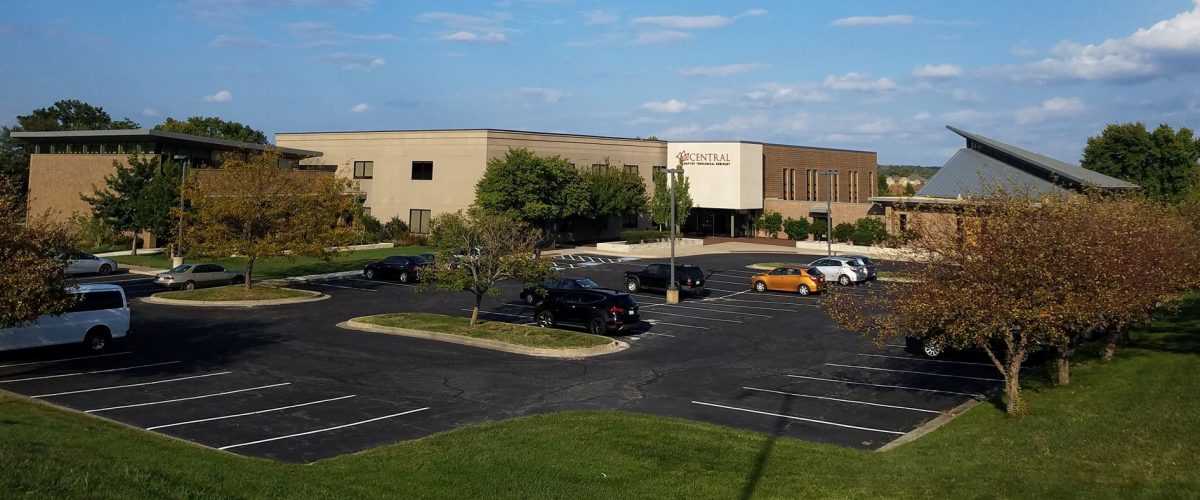Central Seminary plans to sell its suburban Kansas City campus and “right size” into much smaller quarters as it leans into virtual learning as its primary model of teaching.
The 122-year-old seminary affiliated with the American Baptist Churches USA also plans to beef up its scholarship options to make theological education more affordable for its diverse student body that reside in 33 states in the U.S. and in 10 countries around the world and are an average age of 43.
Previously known as Central Baptist Theological Seminary, the Kansas-based school became a refuge for aspiring clergy affiliated with the Cooperative Baptist Fellowship after its formation in 1991. The school remains an institution of the ABCUSA and draws students from a host of denominational affiliations.

Central Seminary trustees 2023
Trustees approved the campus sale last week as part of a three-pronged strategic plan called “The Future is Central.”
An explanation on the seminary website states: “The preference of Central students is to study remotely. It allows them to more effectively balance their educational commitment, job requirements and family needs. … Less than 8% of our students live in the Kansas City metropolitan area, and most who live within driving distance of the Shawnee campus have expressed a desire to attend remotely.”
Before the pandemic, Central was a leader in distance-learning models. That format became vital as in-person classes shut down. Now, trustees plan to make distance learning the norm.
“Nearly every prospective student considering Central prefers programs that are virtual and flexible,” the website explains. “Few programs at Central now require in-person learning. Only international students living in the U.S. on a student visa, a few counseling program students, and some doctoral students are required to be occasionally on campus.”
Currently, Central Seminary occupies 45,000 square feet of interior space on 9 acres of land. The new core campus, to be located somewhere in the Kansas City area, will be about 9,000 square feet, the news release said.
“This strategic move will propel Central forward by directing more resources to students, programming and our mission,” trustees said. “The move will reduce the financial overhead of unused physical space, decrease our financial liability, make new technologies easier to adopt, and lessen our ecological footprint.”
That new space will include multiple classrooms “outfitted with cutting-edge technology, office space for staff and faculty, several meeting rooms, a gathering area, and a small print library.”
Rather than a physical library, most resources will be accessed on the Digital Theological Library, which students already use. That library houses 1.5 million books, 104 million articles, 61,000 journals and 174 databases.
A second initiative approved by trustees will evaluate degree programs offered, with an emphasis on shorter programs. Currently, the master of divinity degree — which has been the core degree program for all U.S. seminaries for decades — takes three years to complete if a student studies full time.
“Many of our students prefer shorter degree programs that are less expensive and have more focus on practical application and adaptive leadership”
With diverse career objectives in mind, “many of our students prefer shorter degree programs that are less expensive and have more focus on practical application and adaptive leadership,” the website states. “Educational requirements for ministers seeking ordination or endorsement are changing. Some denominations now accept other credentials as alternatives to the traditional master of divinity degree.”
No specifics were offered on this strategy.
The third initiative approved by trustees will increase financial aid available to students, even though the school already has one of the lowest tuition rates among schools of its kind. According to rates published on the website, an M.Div. may be completed for less than $30,000 — before financial aid.
Yet most of Central’s students are “working and living with many other financial obligations,” the statement notes. “Prospective Central students often hesitate to take on new financial responsibilities and accumulate educational debt. This hesitation has been a reality for many years, but in wake of current inflation and economic challenges, it has been amplified.”
Trustees adopted a strategy that says next year, Central “will focus on expanding our already robust student scholarship opportunities with the spring launch of a ‘100 Scholarships in 100 Days’ campaign with the goal of raising $100,000 for scholarships and tuition reduction measures.”
The board is chaired by ABCUSA minister Jim Cook. Pam Durso, who came out of the SBC through CBF, is the school’s president.
Founded in 1901, the seminary previously owned a much larger 82-year-old campus in Kansas City. When Molly Marshall was named seminary president in 2004, the school was in financial distress. During her tenure, the school retooled, sold the historic campus and relocated to the current site. Since then, the seminary has been stable and growing.
The current chapel was dedicated in 2011.


